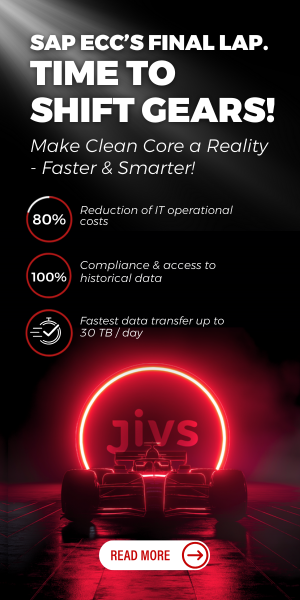The clock is ticking for Microsoft Dynamics 365 users, especially in the Finance, Supply Chain, and Commerce industries. Starting November 1, 2025, Microsoft has planned to enforce stricter rules on license validation for Dynamics 365 Finance & Supply Chain (D365FSC). On the surface, this seems to be a simple licensing reconciliation. However, the announcement has exposed years of security gaps and unchecked access in many organizations. Thus, the deadline signals an important need for robust ERP governance before it is too late.
Managing Access
Who has access to sensitive financial data has so far been low on many companies’ list of priorities. However, the upcoming licensing enforcement has many businesses scrambling to audit their Microsoft Dynamics 365 access. In this process, many organizations have identified numerous privileged users and potential compliance issues, leading to the realization that the company’s sensitive ERP data has been accessible to various individuals, many of whom should not have had access to it. This lack of visibility creates an environment that is vulnerable to potential fraud, data breaches, and numerous other security risks.
Moreover, manually tracking roles, permissions, and segregation of duties (SoD) is a recipe for disaster for these organizations. This is where a solution like Delinea’s Fastpath becomes an indispensable ally.
Cutting Through ERP Complexity
Fastpath is designed to cut through complicated ERP access control. It provides a clear, automated way to:
- Analyze user access: Get a comprehensive view of who has access to what, down to the object level. This enables organizations to identify and eliminate unnecessary permissions, ensuring that users have only the access they need to perform their jobs.
- Identify and remediate SoD conflicts: Organizations can proactively identify and mitigate SoD conflicts before they become audit findings or lead to internal fraud.
- Streamline audits and compliance: Companies can generate the reports required to satisfy auditors and demonstrate compliance with regulations such as SOX, GDPR, and others.
- Optimize licensing costs: By right-sizing user access, companies can ensure they pay only for the licenses they truly need, avoiding unnecessary expenses.
- Analyze telemetry usage data: By adding actual application usage data to reporting, companies can review the ‘did do’ vs ‘can do’ of each user. This helps further promote true least privilege security and optimize licensing.
A Use Case
A diversified manufacturing company that was implementing D365FSC recognized that relying on Microsoft’s out-of-the-box security roles would grant excessive access and increase licensing costs.
However, by implementing Delinea Fastpath, the company could quickly analyze and refine user permissions, significantly reducing the number of high-cost operational-level licenses required. The firm’s IT Director noted that a major motivator for using Fastpath was the ability to save on licenses within the first year.
The impending D365FSC license enforcement is a wake-up call. It’s an opportunity to move beyond simply being compliant and to build a truly secure and efficient ERP environment. Don’t wait for the canary in the coalmine to stop singing. Take control of your ERP access with a solution that provides the visibility and automation needed to navigate this new reality.
What This Means for ERP Insiders
Proactive governance is better than reactive audits. Many companies only discover significant security risks, like widespread excessive privileges or critical SoD conflicts, when auditors are already knocking at the door. For example, an advertising platform that implemented Delinea’s Fastpath solution when migrating to Oracle Cloud ERP proactively analyzed and cleaned up its security roles, rather than waiting for an audit. This not only made its auditors very happy but also embedded clean, compliant access controls into its day-to-day operations. ERP Insiders must note that continuous, automated monitoring is far more effective and less disruptive than scrambling to fix problems reactively.
Security and compliance should drive business value. Strong access governance directly translates into tangible business benefits, including significant cost savings. By analyzing and right-sizing user access from the start, organizations can reduce the number of expensive, high-level operational licenses needed to purchase. Thus, for ERP Insiders, embedding security and compliance early in an ERP project can directly reduce implementation and licensing costs, delivering a clear return on investment.
Manual controls are no match for the complexity of modern ERPs. Relying on spreadsheets and periodic manual reviews to manage user access and SoD conflicts is inefficient and prone to human error, resulting in significant security gaps. However, automating user access reviews, SoD analysis, and compliance reporting eliminates blind spots and ensures that security policies are enforced consistently. This enables IT and compliance teams to transition from tedious, manual data processing to strategic risk management.






